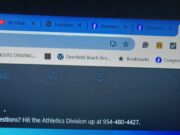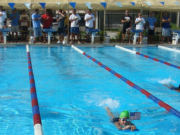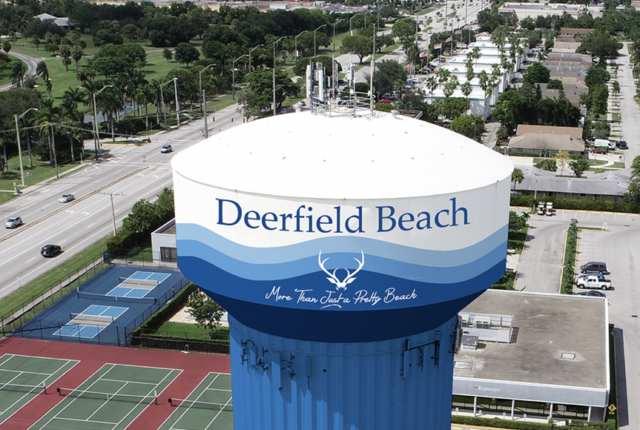Deerfield-News. com-Deerfield Beach, Fl-From FDACS.gov-Part of Broward County Quarantined.
The treatment areas consist of positive properties in addition to select negative properties within 200 yards of a snail detection. To prevent the further spread of this snail, it is necessary to apply a metaldehyde-based molluscicide (snail bait) to properties within the treatment area. The treatment is labeled by the U.S. Environmental Protection Agency for residential use.
To successfully eradicate this pest, properties within the treatment area will require a total of 26 treatments along with an additional 19 months of negative survey for the presence of GALS. The treatments consist of at least 18 bi-weekly treatments followed by eight monthly treatments. Following the treatment process, multiple surveys will take place during the day along with at least one night survey and one survey performed by a detector dog. The quarantine will remain in place for the duration of this process. These procedures are required to safeguard Florida’s agriculture industries and natural resources along with ensuring there are no international trade implications enforced due to the establishment of this detrimental pest.
Metaldehyde is a pesticide used to control snails and slugs and is approved for use in a variety of vegetable and ornamental crops in the field or greenhouse, on fruit trees, small-fruit plants, in avocado and citrus orchards, berry plants, banana plants and in limited residential areas. Available products can be applied as granules, sprays, dusts or bait pellets. Applications are typically made to the ground around the plants or crops to be protected.
Property owners inside the treatment area will be notified in person or by posted notice at least 24 hours in advance of the planned pesticide treatment.
Metaldehyde works by disrupting the mucus production ability of snails and slugs. This reduces their digestion and mobility and makes them susceptible to dehydration. Snails and slugs that have eaten metaldehyde often seek hiding places, become inactive and begin to die within days.
Giant African Land Snail
Pest Information
The giant African land snail (GALS) is one of the most damaging snails in the world and consumes at least 500 different types of plants. These snails could be devastating to Florida agriculture and natural areas as they cause extensive damage to tropical and subtropical environments. The snails also pose a serious health risk to humans by carrying the parasite rat lungworm, known to cause meningitis in humans. Giant African land snails are illegal to import or possess in the United States without a permit.
The giant African land snail has been eradicated twice in Florida. The first detection was in 1969 and was eradicated in 1975. The most recent eradication of this pest was in 2021 from a detection in 2011 in Miami-Dade County.
There are currently three quarantine areas throughout Florida. These quarantines are in Broward, Lee and Pasco counties. It is unlawful to move the giant African land snail or a regulated article, including, but not limited to, plants, plant parts, plants in soil, soil, yard waste, debris, compost or building materials, within, through or from a quarantine area without a compliance agreement.
Detailed information about each quarantine and treatment area can be found at the following links:
- Broward County Quarantine and Treatment Information
- Lee County Quarantine and Treatment Information
- Pasco County Quarantine and Treatment Information
Giant African land snails vary in phenotype (color pattern). The populations previously eradicated in South Florida and the populations in Lee County possess dark brown shells with grayish-brown flesh. The snails detected in Pasco County have light to dark brown shells with milky white flesh. The lighter fleshed snails are sometimes referred to as “albino GALS” and are more desirable in the illegal pet trade. If you are interested in adopting an invertebrate pet, please visit the USDA Invertebrate Pets website.
Think you found a giant African land snail? Refer to the ID sheet. Still not sure? Email a photo for identification to DPIHelpline@FDACS.gov.
DO NOT HANDLE SNAILS WITHOUT WEARING GLOVES!
On June 2, 2023, the Florida Department of Agriculture and Consumer Services (FDACS) confirmed the detection of giant African land snail in the Miramar area of Broward County. This detection was reported to the FDACS Division of Plant Industry Helpline.
On June 20, 2023, FDACS’s Division of Plant Industry enacted a quarantine and started the treatment process to eradicate this detrimental agricultural pest. FDACS will treat properties with a metaldehyde-based molluscicide (snail bait). The treatment is labeled by the U.S. Environmental Protection Agency for residential use.
It is unlawful to move the giant African land snail or a regulated article, including, but not limited to, plants, plant parts, plants in soil, soil, yard waste, debris, compost or building materials, within, through or from a quarantine area without a compliance agreement.
The treatment areas consist of positive properties in addition to select negative properties within 200 yards of a snail detection. To prevent the further spread of this snail, it is necessary to apply a metaldehyde-based molluscicide (snail bait) to properties within the treatment area. The treatment is labeled by the U.S. Environmental Protection Agency for residential use.
To successfully eradicate this pest, properties within the treatment area will require a total of 26 treatments along with an additional 19 months of negative survey for the presence of GALS. The treatments consist of at least 18 bi-weekly treatments followed by eight monthly treatments. Following the treatment process, multiple surveys will take place during the day along with at least one night survey and one survey performed by a detector dog. The quarantine will remain in place for the duration of this process. These procedures are required to safeguard Florida’s agriculture industries and natural resources along with ensuring there are no international trade implications enforced due to the establishment of this detrimental pest.
Metaldehyde is a pesticide used to control snails and slugs and is approved for use in a variety of vegetable and ornamental crops in the field or greenhouse, on fruit trees, small-fruit plants, in avocado and citrus orchards, berry plants, banana plants and in limited residential areas. Available products can be applied as granules, sprays, dusts or bait pellets. Applications are typically made to the ground around the plants or crops to be protected.
Property owners inside the treatment area will be notified in person or by posted notice at least 24 hours in advance of the planned pesticide treatment.
Metaldehyde works by disrupting the mucus production ability of snails and slugs. This reduces their digestion and mobility and makes them susceptible to dehydration. Snails and slugs that have eaten metaldehyde often seek hiding places, become inactive and begin to die within days.
Starting at the intersection of Pembroke Road and South University Drive, proceed south on South University Drive to NW 215th Street. From this intersection, proceed east to SW 62nd Avenue. At this intersection, progress north to Pembroke Road. The quarantine will proceed west on Pembroke Road to its intersection with South University Drive.





































